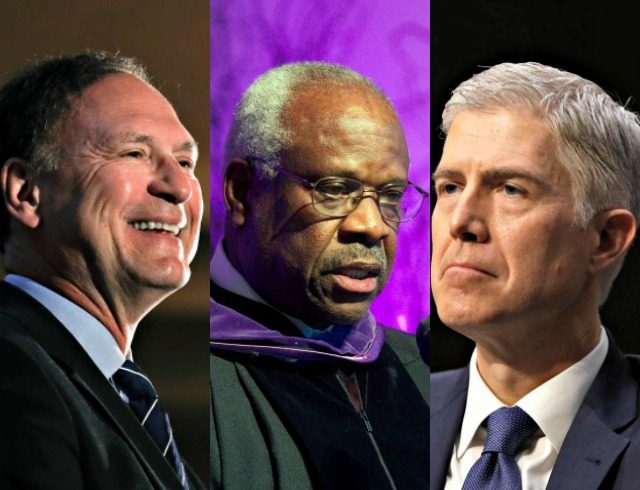The Supreme Court of the United States denied the Justice Department’s request for clarification of the order partially reinstating President Donald Trump’s travel ban Wednesday, but stayed part of Judge Derrick Watson’s ruling that severally limited the ban.
The Justice Department had asked the high court to immediately declare that Judge Watson, of the U.S. District Court for the District of Hawaii, had misinterpreted SCOTUS’s ruling in declaring the State Department’s definition of “close familial relation” invalid. The State Department had sought to limit the exception to merely those with a “parent, spouse, child, adult son or daughter, son-in-law, daughter-in-law or sibling” living in the United Sates. Watson also ruled that the travel ban could not go into effect for “refugees covered by a formal assurance.”
Wednesday’s Supreme Court order refused to clarify the meaning of the original reinstatement, leaving Watson’s expanded definition of familial relations in place while the government’s appeal to the U.S. Court of Appeals for the Ninth Circuit pends. It did, however, stay the section of Watson’s ruling applying to refugees, meaning those refugees from the six Muslim-majority countries specified in President Trump’s Executive Order #13,780 can continue to be excluded from the United States.
Justices Neil Gorsuch, Clarence Thomas, and Samuel Alito, the same trio who filed a separate concurrence in the original decision to allow the ban to come partially into effect arguing the definitions of the exceptions to the ban were ill-defined and would lead to rulings like Watson’s, here argued for a total stay on Watson’s decision while the appeal is pending.
The government will now challenge Watson’s decision on direct appeal to the Ninth Circuit in the hopes of reinstating the State Department definitions. All these proceedings will take place under the backdrop of the Supreme Court’s own scheduled hearing on the constitutionality of the travel ban executive order in its entirety in its fall term.
The Supreme Court case is Trump v. Hawaii, No. 16–1540 now joined to Trump v. International Refugee Assistance Project, No. 16–1436, the other major travel ban case.

COMMENTS
Please let us know if you're having issues with commenting.